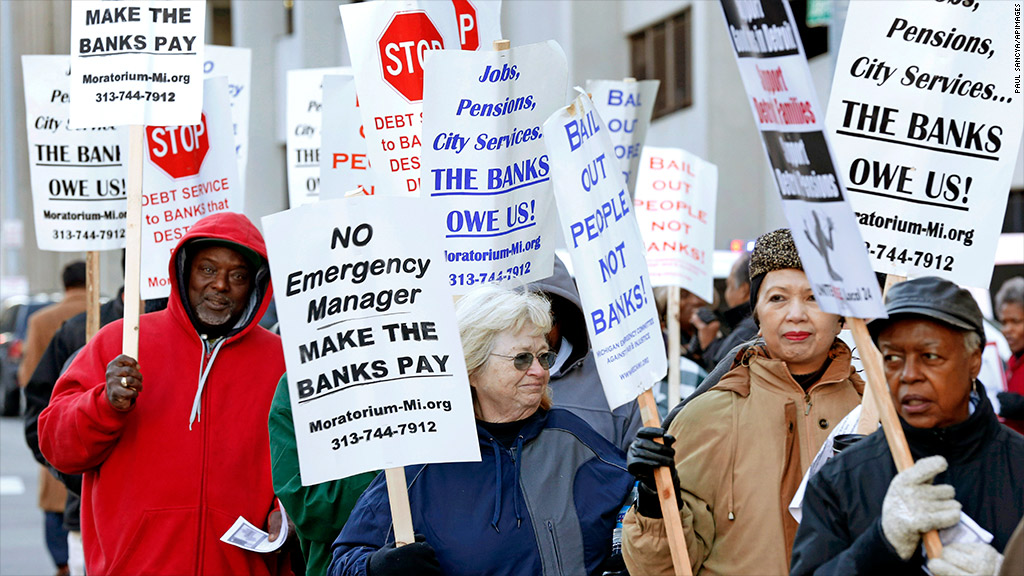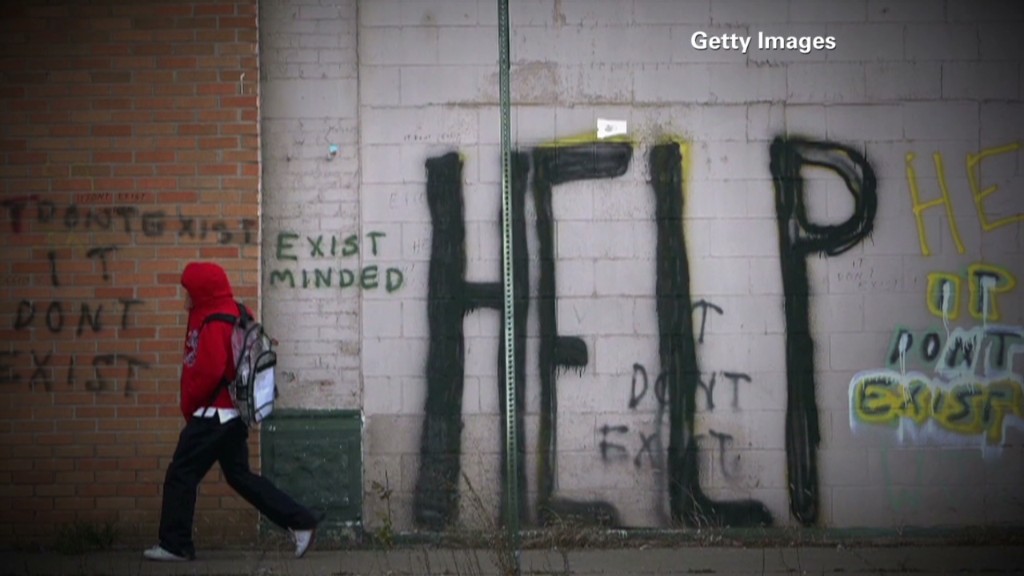
Is Detroit truly bankrupt?
It seems like an easy question to answer, given that it has $18 billion worth of liabilities and little in the way of cash to pay them.
But for the past two weeks, a court has been listening to testimony to determine whether the city should be allowed to proceed with its bankruptcy. If that permission is granted, Detroit will be able to pay pennies on the dollar to its creditors, like the city's 9,500 employees, 24,000 retirees, their pension funds and bond holders.
In addition, Detroit hopes to do something that no bankrupt city has done before: Impose deep cuts to pension and health care benefits that are owed to public employees.
Related: City pension woes - Detroit is not alone
The decision on pensions and health care benefits won't be made at this hearing. But if Detroit gets the green light for a reorganization, it opens the door to the proposed cuts. This hearing is the unions' best chance to prevent that from happening.
If the unions lose, it could set a precedent that impacts millions of police officers, fire fighters and teachers nationwide.

For a city to be allowed to proceed with its bankruptcy, it must not only be deemed insolvent, as Detroit so clearly is. A judge must also determine that the city made a good-faith effort to reach a deal with its creditors, or that it was impractical to do so.
Related: Detroit delays retiree health care cuts due to Obamacare site woes
Specifically, this hearing has been focused on claims by the unions that Michigan Gov. Rick Snyder and Detroit Emergency Manager Kevyn Orr never truly intended to make a deal to keep Detroit out of bankruptcy. It's a claim that both Snyder and Orr denied under oath.
The unions and pension funds are also arguing that the Michigan constitution prohibits cuts to pension benefits.
Related: Detroit pensions - bribes, a $5,000 poker chip and a big financial hole
But the assumption among experts is that bankruptcy court judge Steven Rhodes will find that Detroit is eligible for bankruptcy court. If Detroit isn't granted permission to proceed, chaos would ensue. In that case, every creditor could sue the city to get the money they are owed, even though there's no money to pay them.
"For a city in as dire straits as Detroit is, you'd have to think of bankruptcy as an option," said Juliet Moringiello, a law professor at Widener University. "What do they really gain if the case is dismissed? There's no money to pay anybody."


